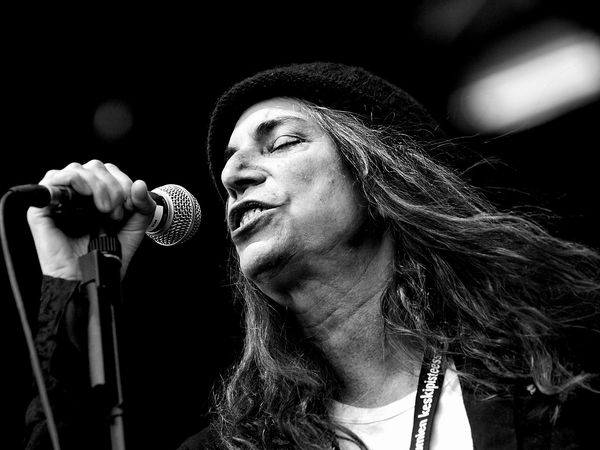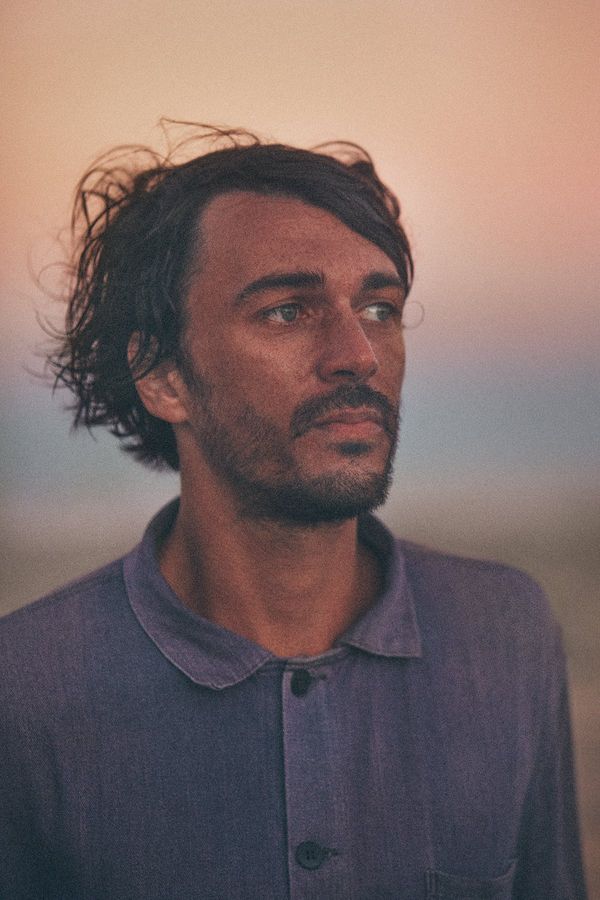by Lily Houston Smith
“I work two jobs,” sings Alyssa Joseph in “leaning,” the third track on her new EP, alive, “and thank God I don’t pay rent.” She sings of student loans, bad romantic decisions, that vague feeling of wrongness that characterizes one’s mid-to-late twenties—all with that shameless self-centeredness that makes deeply personal and vulnerable music so fun to listen to. Alyssa claims a musical space to revel in personal disaster: self-destructive behavioral patterns, existential crises, an anxiety-inducing lack of purpose. “Am I wasting time?” she asks. “Thought I’d be in Nashville by now.”
Alyssa did make it to Nashville—shortly after she finished writing and recording the album of which alive is an enticing preview. (Alyssa told me there’s no word yet on the exact release date of this complete album, but we can expect to see it later this year.) Once in Nashville, she hoped to find a robust, generative songwriting community and assemble a team to mix and master the songs she’d recorded.
While lockdown delayed its release—the EP came out on June 4th—the music remains timely, capturing both the lingering rage from so much devastation and injustice, as well as the mood of contemplation and reflection as we reemerge and reenvision our futures. I talked to her the following week, the day after her virtual launch show. We discussed what it was like to perform again, especially as she wades through the taxing mire of grief—she lost her brother during the pandemic—and the ways in which making music can (and can’t) act as a balm for loss.
LILY: The energy of this EP feels really cathartic. Was there something specific you were exercising or working through with these songs?
ALYSSA: Basically every track is either a soul-bursting moment or it’s about feeling the weight of existence. Each track is written at a moment of transition. I think moments of transition are hard, even in music. Like when you practice with the band, you normally get good at the verse and good at the chorus, but then you’ve gotta smooth out that transition from one to the other. Life’s kind of like that too. A lot of things that have happened in the course of my life that I wasn't prepared for. My songs are based on my life, and I’m just trying to help other people live theirs.
Did these songs come together in roughly chronological order?
Actually, I think the order they are on the EP is the order that they were written, which is hilarious. It starts very surface with my dating life, and then it progresses to getting deeper and deeper into my anxieties. It just gets more vulnerable, ending with the last track that's about existentialism and like, why the fuck are we here?
It’s interesting that you wrote them in that order and they ended up getting progressively more vulnerable. Do you think that the process of writing the music is what allows you to burrow deeper into certain emotions and anxieties?
I dunno. I think those deep feelings were always there and I just wasn't ready to write about them. So it's easier to talk about love or materialism and cling to that. It takes some time to dig down and get to the scary shit, you know?
I know that some of the songs on this EP were inspired by growing up in New Jersey. How does your experience as a New Jersey native influence your music—especially now that you’re in Nashville?
One song in particular, “easier,” was about me and a dude that I was on and off with. We would meet up once a month at different Jersey diners and we'd take turns picking which diner we were going to. That's a very Jersey thing to do. It's always fun to put a little nod to where I'm from.
I grew up in South Jersey, in the suburbs. There was so much diversity, which was amazing, and there were a lot of experiences that I got to have in performance. And then I moved to Philly and went to Drexel for [a degree in] Music Industry. It was only 30 minutes away from home. I think it was important to find myself as an artist and figure out what I wanted to do, and then I would be able to move somewhere else.
It's not the most common thing to be an alternative indie singer-songwriter from South Jersey. I think it was cool because I got to outgrow it and leave that nest and go to Philly—and then outgrow that and realize that scene didn't align with what I was doing.
What drew you to Nashville?
Downtown Nashville is very country oriented, but Nashville in general is just music oriented. All genres are very present here. The number one industry here is music. So it's country focused, but what they really care about are songwriters.
I am a songwriter. I stand out in this crowd because I'm not just a girl with an acoustic guitar singing Taylor Swift covers. I live in East Nashville, which is kind of the anti-country area of Nashville. It's a bunch of grunge, garage bands, punk—which is cool because I can chill here and still stand out as well.
The other thing is, you know how freshman year of college, everyone is super nice because you don't know who's going to be your friend? So many people in Nashville are transplants. People are moving here all the time, so it's always like that. Everyone is always down to grab coffee. You could call up the vice president of Warner Music Group and ask him to coffee, and he probably would say yes.
How has being a part of this community and making these connections influenced the songs on this EP?
I actually recorded alive back in Philly. When I moved down here it wasn’t mixed yet, and I knew from previous feedback on releases that my production value wasn't at the same caliber as my songwriting and performance. So finding a mixing engineer was super important to me and I wanted to do that when I got to Nashville.
It was super important for me to find non-cis white males to do the engineering because that is a male-dominated field. And if I’m not pursuing femme engineers, what male country artist is going to? I did find an amazing mixing engineer; her name’s Kate Haldrup. Right now she's mixing a record for Lilly Hiatt. And I found an awesome mastering engineer who does everything analog—Raelynn Janicke. They both totally elevated the music. It is the best production I've released thus far, and I feel like everything's on the same level now.
Do you have any future collaborations planned?
Finding Kate and Raelynn was not easy, but it was definitely worth it. And now I'm trying to do that with a band. I have a bassist and we're supposed to jam with a potential drummer on Monday. But I don't have any tours planned. I just don't think I'm emotionally ready for that yet. My brother passed away over the pandemic, so I don't feel ready to be out there all the time. Grief really saps your energy, so I’m slowly building that back up. Just trying to be kind to myself.
It's funny. When you go through a very immediate loss, the things you think will be very therapeutic to you are not. I thought writing would be really good and I've written one song in the past 10 months since he died. And it was a love song. Like, ew.
I’m so sorry to hear that. It is true with grief; you never know what will end up being therapeutic and what won’t. There’s no predicting it.
Yeah—like releasing music has been healing. Who knew that would happen, you know? But I'm just not ready to write yet. I've tried a few times, and it’s ended with a string of really, really bad days. But I do have songs that I wrote at the beginning of the pandemic, so I will definitely start exploring those. It's just weird, though, because that's not my mindset anymore.
What about performances? Have you started dipping your toes into live performances?
I had a little live stream—an EP release show—which was really nice and intimate. It would be nice to do that in person. I did do another live stream at the beginning of the pandemic, but then live streams took over and I was like, am I just shouting into the void? Am I really saying something new? I just decided that with the Black Lives Matter protests and everything that was going on, it didn’t feel like the time for me to try and have my voice heard. And then my brother passed, so I couldn't do any of that. The EP release show was my first one since that happened.
How did it feel to perform again?
It was really nice. I definitely miss playing shows, but not all of it. It’s a lot of energy; it’s people-pleasing, schmoozing, selling merch. The whole night is a performance, not just when you're on stage. It's high energy being an authentic version of yourself that is appealing to people. I'm just not there yet. But the performance part was awesome. And it was nice to be in my bedroom.
Lily Houston Smith co-edits the Letters section for Laid Off NYC. Get to know her better: @Lily_H_Smith



